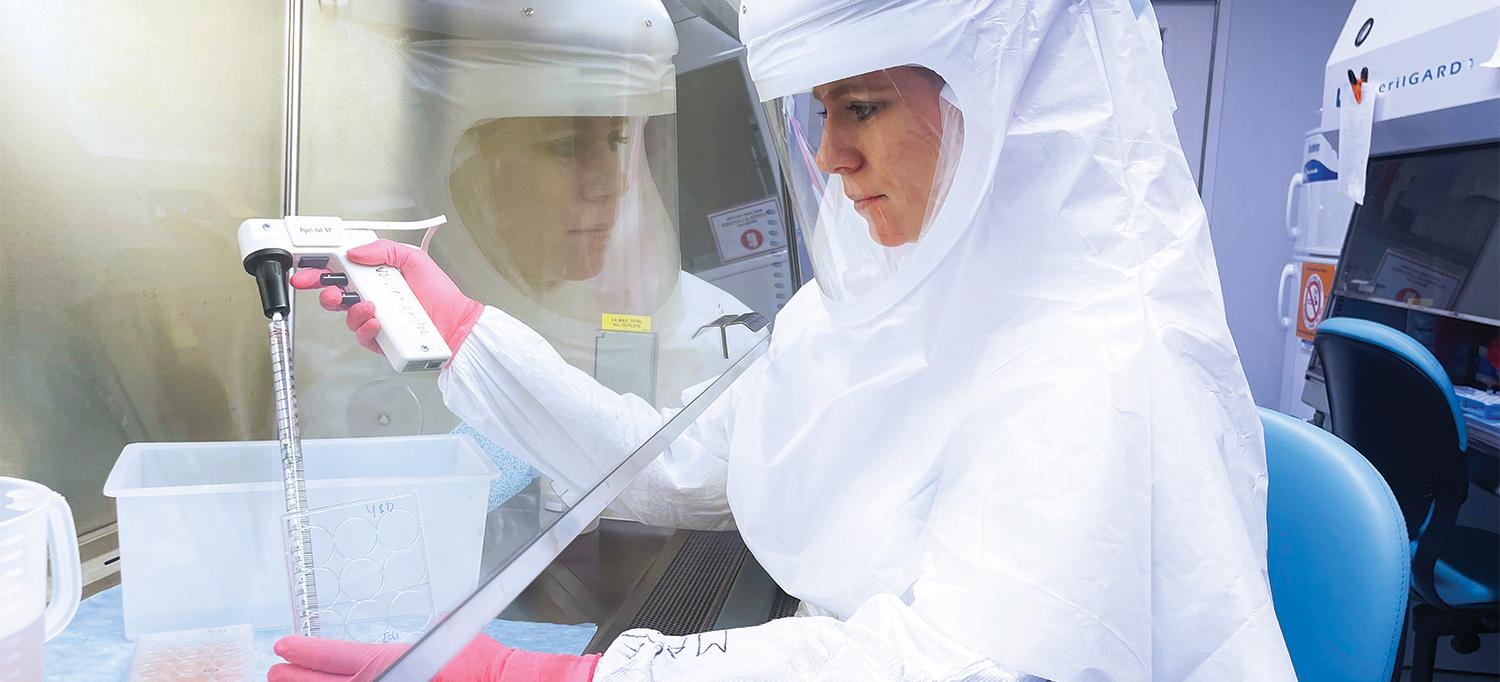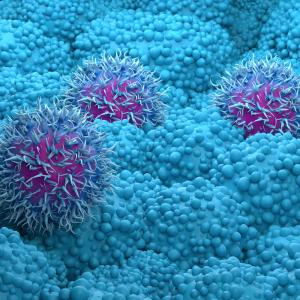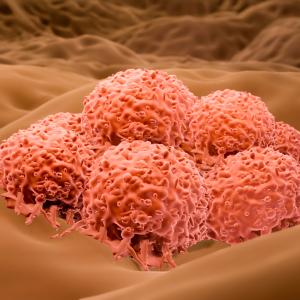NYU Langone Researchers Capitalize on State-of-the-Art Lab Facilities to Safely Investigate Pressing Questions about the Virus

Maren De Vries, PhD, performs experiments on SARS-CoV-2 in the high-containment lab of Meike Dittmann, PhD.
Photo courtesy of Dr. Ludovic Desvignes
Since 2016, NYU Langone Health’s newest and largest high-containment lab has enabled researchers to securely study contagious pathogens that require extra layers of precautions. So when the pandemic hit last year, the institution was well prepared to examine the virus safely. Here are nine major COVID-19 studies that took place in the Biosafety Level 3 (BSL-3) laboratory.
Can a Free-Floating ACE2 Inhibitor Block the Growth of SARS-CoV-2?
The first step in a coronavirus infection occurs when the virus latches onto a protein called ACE2 that lines the surface of cells in the lungs. With this in mind, virologist Nathaniel R. Landau, PhD, professor of microbiology, engineered a free-floating version of the ACE2 protein to serve as a decoy that binds to the virus before it reaches lung cells. Dr. Landau and team found that their ACE2 imitator was highly effective at inhibiting viral entry into cells and blocking the replication of SARS-CoV-2 both in vitro and in a mouse model. The study’s findings, published in Cell Reports, may point to future therapeutics to treat and protect against COVID-19.
How Does the Spike Protein Fool the Immune System?
To better understand how human antibodies naturally fight coronavirus, Shohei Koide, PhD, professor of biochemistry and molecular pharmacology, designed variants of the virus’s famous spike protein, which binds to human cells, subjected them to blood samples from 94 COVID-19–recovered patients, and generated synthetic versions of human antibodies targeting the variants in test tubes. In a study published in Journal of Molecular Biology, the researchers showed that only a small fraction of both natural and synthetic antibodies targeted a vulnerable region of the spike protein important for neutralizing the virus. Their findings hold important implications for future vaccine design.
Is a New Antiviral an Effective Alternative to Remdesivir?
With a dire need for effective antiviral treatments for patients with acute COVID-19 symptoms, principal investigator Meike Dittmann, PhD, assistant professor of microbiology, tested a potential new therapy that targets an enzyme essential for SARS-CoV-2 infection and multiplication. Publishing the results in Journal of Virology, Dr. Dittmann and team found that their experimental drug, called PF-00835231, is at least as effective as remdesivir, the only antiviral approved to treat patients infected with COVID-19, when tested in a model of the human airway epithelium.
How Does Viral Load in the Lower Airways Reflect Patient Outcomes?
Few studies have been completed on the lower airways in patients with COVID-19 due to the risk of viral transmission to healthcare providers. Leopoldo N. Segal, MD, associate professor of medicine, and clinicians and researchers at NYU Langone obtained bacterial and fungal culture data from 589 critically ill patients requiring mechanical ventilation; they also performed bronchoscopies on some of these patients to quantify the viral load and immune response within their lower airways. The team found that those patients whose samples revealed a high SARS-CoV-2 viral burden and a poor antibody response had the highest mortality rate.
Do Recovered COVID-19 Patients Need a Booster Shot?
People previously infected with SARS-CoV-2 still require the protection provided by a COVID-19 vaccine, but they may not need two. An exploratory study led by Mark J. Mulligan, MD, director of NYU Langone’s Vaccine Center, found that recovered patients who receive their first dose of the Pfizer–BioNTech vaccine produce antibodies equal to or greater than uninfected people who receive both doses. Moreover, the scientists found that a booster shot among recovered patients did not improve their antibody levels further. The findings, if confirmed by additional and larger studies, could alter vaccine guidelines and make additional doses available to other patients.
Are Recovered Patients Immune to Reinfection?
Patients who have recovered from COVID-19 often test positive for viral antibodies, but are they protected from reinfection? To find the answer, the teams of principal investigators Kenneth A. Stapleford, PhD, assistant professor of microbiology, and Shohei Koide, PhD, analyzed blood samples from 101 recovered healthcare workers for 3 types of antibodies: IgG, IgM, and IgA. The results, published in Scientific Reports, suggest that patients who produce a broader spectrum of antibodies can more effectively neutralize the SARS-CoV-2 virus than those who produce individual isotopes.
Do Vaccinations Evoke the Same Immune Response as COVID-19?
A SARS-CoV-2 infection and the Pfizer–BioNTech vaccine can both stimulate robust immune responses that shield against subsequent infection. In a recent study, Sergei B. Koralov, PhD, associate professor of pathology, analyzed 120,000 immune cells from volunteers to compare the two. His team’s findings revealed that while both infection and vaccination lead to the production of many different types of immune cells to fight COVID-19, the blood of vaccinated people had three times as many memory CD8T cells, which can attack the virus directly, suggesting their protection could last longer. Beyond this, vaccinated patients had far fewer immune cells tied to body-wide inflammation in COVID-19 patients. By contrast, those infected with the virus had high levels of inflammatory immune proteins, which exacerbate symptoms and might be tied to “long haul” symptoms that linger for many months after infection.
How Does COVID-19 Cause a Cytokine Storm?
A coronavirus infection can unleash a rush of immune-stimulating proteins called cytokines, causing fluid buildup in the lungs that severely impairs breathing. Jun Wang, PhD, assistant professor of pathology, discovered that this damaging response is not caused by the spike protein’s entry into lung cells, as previously thought, but rather by the way it interacts with surface proteins in immune cells. Based on the findings, published in the journal Immunity, he and team members generated an experimental therapeutic derived from antibodies that blocks the virus from attaching to proteins in both lung and immune cells. The research team plans to test the potential treatment in patients with severe cases of COVID-19.
Is a New Monoclonal Antibody Effective at Reducing COVID-19 Symptoms?
Monoclonal antibodies, laboratory-produced molecules that either enhance or mimic the immune system’s response to invading cells, have shown promise as a way to combat inflammatory diseases, including the coronavirus. Meike Dittmann, PhD, and researchers from NYU Langone’s Vaccine Center tested an experimental monoclonal antibody designed to neutralize COVID-19’s signature spike protein. The results, published in Science Translational Medicine, showed significant protection from infection and demonstrated the potential for reduced viral transmission, which support the use of the drug for the prevention and treatment of the virus.

